 _
_St Joseph of Arimathea by Pietro Perugino
 -
-Brychan'Brycheiniog,holiest family in Wales
 -----------------
-----------------In 71AD: Joseph "Ha-Rama-Theo", the desposynic prince, one of Jesus’ kinsmen (Mt. 13:55), was given an estate in Britain by the British King Arvcviragus (brother of Caractacus) that comprised 160 acres of land [= “one hide”] surrounding an old hill-fort as his residence, which estate was raised in status to a kingdom, Garthmadrun, by the Roman Emperor Maximus in AD 383. What makes this more credible is that Joseph accompanied the Roman Emperor Vespasian during his British campaign, and was given an estate in Britain by the British King Archiviragus, which came to be called "Garthmadrun", and, his descendants are called in the Welsh "Triads" one of the "three holy families" of Britain.
Joseph was a successful dealer in tin and spent a great deal of time in Cornwall, importing it) Whilst leaving with this kinsmen and women, he would have had this property available after Christ’s Crucifixion, Resurrection and Ascension, and probably left a colony at Garthmadrun. Joseph was Mary’s Uncle and so it is reasonable to suppose the family could be ancestors of some of our Welsh saints, particularly Gwynlliw and Cadoc, David and Padarn as well as Cybi.Then there is Madrun (Materiana)of Gwent and Cornwall, and Ishow (Welsh for Esau)
Did twelve hermits go off and found Glastonbury?
William of Malmesbury writing in mediaeval times, did write that Joseph and his family arrived via Wales to found the Kingdom in Britain at the behest of St Philip and St Peter. Joseph had provided the tomb for our Lord after the Crucifixion. They would have arrived with wives and family and extended family and probably left these under the protection of some elders at Garthmadrun while they went on to found Glastonbury. If they came to Wales, they probably arrived at Caerleon, the flourishing Roman fort at this time, right next to Caractacus’ hill fort, which gave Romans such a problem later on.
What is true is that this family of Joseph was particularly revered, because of its links with Mary’s family. In the genealogies there are many Jewish names, and in the lives of the Saints for example.Gwynlliw (and hence Cadoc) is meant to have some of the blood of the kinsmen of Christ according to Cybi’s pedigree, who lists Fallach, son of Eugien son of Erddolen, Avillad, Amlech,Belim, Anna-the cousin of the Virgin Mary.
When I first red this, I smiled. It seemed the holy monks of the eleventh century wanted to give a glorious pedigree to Wales’ greatest saints. Then I discovered the chronologies of these kings. Records show Joseph did die in Britain.The cluster of Jewish names in the Welsh records might lend credence to this, although it has always been held in legend.
In fact there is even a source that Christ’s Apostle Simon the Zealot was martyred in Britannia in 74AD, but I am trying to trace this at the moment.
St David and St Patrick in Glastonbury
St Patrick visited Glastonbury (Ynys Witrin) and set up a ‘llan’ there as the original twelve had remained hermits and Patrick was newly trained and ordained. Interestingly St Patrick was the Son of Sucatus, also of this line of Joseph of Arimathea.He set up the foundation again, according to the developing church. He was also a literate man, and wrote Latin, whereby we have some texts from this period. St David also arrived there later.
St David died at St David’s but Patrick may have been buried at Glastonbury. Obviously the place where the first Church in Britain had been built was sacred and remained so. So where did all the other disciples go? They probably did go to Talgarth (Garthmadrun) . Joseph’s direct line became extinct in the male-line in AD 481, and his family was replaced in official Welsh records by the descent-line of Joseph of Arimathea.
St Gwladys of Newport (glass from St Woolos Cathdral)
 __________________________________________
__________________________________________Here is a family tree I found for Brychan
02. Jasna "Piliste" [his nickname refers to his place of origin in "Palestine"], son, bro of Josue El-Harami
03. Sarclotus, son
04. Emanuel "Erise", son
05. Enciede (Encride) "Ere", son
06. Othrac, son
07. Maxime, son
08. Llebryn (Luibuirne), son
09. Kornodd (Cornuithe), son
10. Mouric, son
11. Ottaviano, son
12. Marchudd, son
383 AD 13. Gwrthryw, 1st King of Garthmadrun (383), son, bro of Oidisse (Odissus), father of Photaighe (Potitus), father of Calpinn (Calpurnius), father of Succat[us],
( aka Saint Patrick, Apostle of Ireland 457-493)
14. Gwraldeg (Gwroldeg), son
15A Morfydd (Morvitha), dau, heiress & co-ruler
15B Teithfall (Teichfallt; Teithwalch ; Taith[w]al) (Tudwal), husband, co-ruler
16. Teuduric (Teithrin), son
17A Marchell, dau, heiress & co-ruler
17B Anllach, husband, co-ruler
Yr 481: Brychan, 1st King of Brecon [Brycheiniog; Brecknockshire]
son of Prince Anllach of Galloway [whose mother was an Irish princess] and Marchell of Garthmadrun, its heiress; succeeded his grandfather as King of Garthmadrun but re-named the kingdom after himself as Brycheiniog, also called Brecon.
The Holy Grail
The early history of the Grail is intimately connected with the story of Joseph of Arimathea. When he is cast into prison by the Jews, Christ appears to him and gives him the vessel, through which he is miraculously sustained for forty-two years, until liberated by Vespasian. The Grail is then brought to the West, to Britain, either by Joseph and Josephes, his son (Grand St. Graal), or by Alain one of his kin (Robert de Boron). Peredur locates it, achieves the quest; and after the death of its keeper the Grail vanishes.
It was conceived as the most precious relic,the cup which had contained the life blood of the Lord Jesus. Of course it was held to have miraculous powers (probably the vision of the Kingdom of Heaven, only given to the pure in heart, which Peredur was meant to be)
The legend was that The angels who remained neutral during the rebellion of Lucifer were its first guardians; then it was entrusted to Joseph who brought it to Britain-Glastonbury, and possibly-the Abbot Collen brought it to Castell Dinas Bran for safekeeping, rather than let it fall into Saxon hands.
 -
-This is a wooden chalice such as it may have appeared, but is of more modern date.
Wolfram von Eschenbach calls this mons salvationis or silvaticus (Munsalwaesche in Middle High German)and this would definitely fit the bill at Castell Dinas Bran, an old Iron Age Hill fort in a remote area of Wales, well protected and later fortified even more.
The Grace of God meant that ancient Britain was converted to the Christian Faith and the family’s input very strengthening to Christianity in Wales particularly, which for many years was spared the rampages of the Saxons of the pagan type-though later they became exemplary Christians.
There are, in the stories some Celtic cultural emblems and symbols as you would expect in a tradition not written down until much later. The Catholic encyclopaedia says of it, that the Catholic Church at the time had nothing to say about Joseph’s arrival in Britain. The story is, after all contained not in Apostolic written material, but the apocraphal Gospel of Nicodemus which was popular in Britain in the 12th century. The Church had an uphill struggle in maintaining the consistant biblical teaching of the Apostolic times .
The Catholic Church had decided on the books of the Bible and what sould be included was only what was in the experience of Jesus twelve apostles themselves, see Catechism of the Catholic Church (paperback from Amazon)
Why the Church did not Comment on the Grail stories
So the Church has not endorsed this as part of the canon of the Bible and it is not 100% reliable, but remains a source of tales and legend. We know more facts now now. That there was a first century mud and wattle church at Glastonbury for instance, as I believe St Patrick alluded to it. The monks at Glastonbury had revered it, and bewailed the fact it had been burnt down.
Blessed Sacrament- a holy relic to be revered
The religious element in the story is fundamental. We read how Joseph, whom the Jews had imprisoned, is miraculously fed by Christ Himself (the Holy Blood). The food vessel can be explained in the holy consecrated bread, later to be a wafer which gives the Body and Blood to the Faithful .Joseph escapes sails for Wales by St Peter and Philip from Jerusalem. Joseph had been there before we believe with Vespasian and had dealt in tin in Cornwall and Wales and had land there. Legend has it St Patrick was buried at Glastonbury and so was Arthwr and Gwenhwyfar his wife, his tombstone being discovered there in the twelfth century.
Saint Collen of Glastonbury is relocated with the brothers to Llan-Gollen because of Civil War and Saxon Threat.
In 519 AD, under the military leader, Arthur’s protection, the community of the descendents of Joseph were relocated from Garthmadrun north to a more secure place, namely Castell Dinas Bran in North Wales at Llangollen. Interestingly St Collen, who was their pastor and Bishop was also Abbot of Glastonbury, itself threatened by Caelin at this time, the Saxon Prince.
Many British kings seemed unable to get their act together and possibly Arthur (the real one, not the lengendary one!) thought they would be more secure here. Joseph and his descendents were known as ‘Grail Kings’ in Wales’ and Cadoc himself was one of the Guardians.
Unity in the Church upon St Peter whom Christ appointed to be the custodian of his Church.
Why it is not mentioned or commented on by the Church in the interests of Unity.
It is plausible that the Grail too-if Joseph had it- was removed for safekeeping during this troubled time and then kept in a secret place in Wales near Llan-gollen by Guardians responsible for its safety. No clerical authors mention it. Unfortunately all the fantastical and magical tales which had been woven around it had sensationalised it contained unchristian symbols and symbolic magic of which the church could not approve.
Druids connected it with the ‘Cauldren of Anwyn’ the amazing source of all visions. Yet Lewis Spence, in his book ‘The Mysteries of Britain’ goes on to say:that later members of the bardic classes were mostly Christians, who had accepted the Body and Blood of Christ as the highest development of Druidism, giving the worthy believer direct access to heaven, just as the Cauldron of Anwyn would give them visions of heaven.
The Central Message of the Kingdom must not be obscured.
In my book, actually achieving heaven by the receiving into your body of the Body of Christ and becoming an adopted son or daughter of God himself and an heir to paradise was more satisfying and something which made life worthwhile. The Druids themselves had always believed in an Otherworld after death, so Christ’s promise was an extension of that, and included all the strength of family life of the ancient Britons, (the ‘llans’ or ‘clans’-families as the building blocks of the Mystical Body of Christ) The important thing for the Church was the building of the Body of Christ, by its members, joined together by the Mass, the celebration of the Body and Blood of Christ and establishment of the Kingdom of Heaven on earth.
The holy cup was undoubtedly a treasured relic of the church and subject of veneration, however.
The issue of Unity-would this create a gulf between Rome and its British arm?
The importance of Peter among the Apostles and to Christ as the leader of the Church.
There was an issue of the importance of the Unity of the Church, which was founded on St Peter, not St Joseph of Arimathea, who had, in obedience, been sent to Britain by St Philip and Peter. In the interests of unity these amazing hair raising stories should not detract from the even more amazing supernatural central truth , the growth of the Kingdom of Heaven in the Body of Christ growing upon the efforts of St Peter and the Church Christ founded upon him .
Among the Twelve Apostles, Peter became conspicuous.
Though of irresolute character, he clings with the greatest fidelity, firmness of faith, and inward love to the Saviour; rash alike in word and act, he is full of zeal and enthusiasm, though he is endearingly human and easily scared, sometimes bewildered. The more prominent the Apostles become in the Bible narrative, the more conspicuous Peters appear as the first among them. In the list of the Twelve on the occasion of their solemn call to the Apostolate, not only does Peter stand always at their head, but the surname Petrus given him by Christ is especially emphasized (Matthew 10:2): "Duodecim autem Apostolorum nomina haec: Primus Simon qui dicitur Petrus. . ."; Mark 3:14-16:
Jesus said 'You are Peter and upon this Rock I will build my Church and the gates of Hell shall not prevail against it.
What did Jesus say?
Jesus asked his apostles : "Whom do men say that the Son of man is?" The Apostles answered: "Some John the Baptist, and other some Elijah, and others Jeremiah, or one of the prophets". Jesus said to them: "But whom do you say that I am?" Simon said: "Thou art Christ, the Son of the living God".
And Jesus replied: "Blessed art thou, Simon Bar-Jona: because flesh and blood hath not revealed it to thee, but my Father who is in heaven. And I say to thee: That thou art Peter [Kipha, a rock], and upon this rock [Kipha] I will build my church [ekklesian], and the gates of hell shall not prevail against it. And I will give to thee the keys of the Kingdom of Heaven. And whatsoever thou shalt bind upon earth, it shall be bound also in heaven: and whatsoever thou shalt loose on earth, it shall be loosed also in heaven". Then he commanded his disciples, that they should tell no one that he was Jesus the Christ (Matthew 16:13-20; Mark 8:27-30; Luke 9:18-21).
Peter-Simon's new name , was Petros-The Rock
By the word "rock" Jesus cannot have meant himself, but Peter, as is so much more apparent in Aramaic. He wishes to make Peter the head of the whole community of those who believed in Him as the true Messiah; that through this foundation (Peter) the Kingdom of Christ would be unconquerable; that the spiritual guidance of the faithful was placed in the hands of Peter, as the special representative of Christ.
This meaning becomes clearer when we remember that the words "bind" and "loose" are not metaphorical, but Jewish legal terms. It is also clear that the position of Peter among the other Apostles and in the Christian community was the basis for the Kingdom of God on earth, that is, the Church of Christ. Peter was personally installed as Head of the Apostles by Christ Himself. This foundation created for the Church by its Founder could not disappear with the person of Peter, but was intended to continue and did continue (as actual history shows) in the primacy of the Church and its bishops to Benedict today.
 ______________________________
______________________________This was why in the early days the Grail is not commented upon by Church writers. Unity was the most important thing of all to the church. There was no internet, no telephone, no satellites. It was important the Faithful should focus on the Truth of the real message of the Kingdom. The original teaching of Christ had to reach through the centuries intact.
Extract from Peter’s First Letter to early Christians
As Peter writes his instructions in his first letter to the churches, Bishops and Priests,
+From Peter,
Apostle of Jesus Christ ,
to all those aliens (means ‘temporary citizens of the world)living among gentiles of Pontus, Galatia, Capadocia,Asia and Bithynia, who have been chosen, by the foresight of the father, to be made holy by the Spirit, obedient to Jesus Christ and sprinkled by his blood. Grace and peace be yours in abundance.
I urge the presbyters among you (priests)as a fellow Presbyter and witness of the sufferings of Christ, and as one who is to have a share of the glory to be revealed, give a shepherd’s care to the flock of God that is entrusted to you, watch over it, not simply as a duty , but gladly as God wants, not for sordid money, but because you are eager to do it
Do not ‘lord it’ over the group in your charge, but be an example to the flock .When the Chief Shepherd appears, you will be given the unfading crown of Glory’.In the same way, younger people,be subject to the elders. Humility towards one another must be the garment you all wear constantly, because God opposes the proud but accords his favour to the humble. (*Compare here the words of the Virgin:’he has brought down the mighty from their seat and has exalted the humble and meek’(Magnificat-St Luke 2) Bow down now, then before the power of God, so that he may raise you up in good time.
Unload your burdens on to him, since he is concerned about you. Keep sober and alert, because your enemy is the devil and on the prowl on earth like a roaring lion , looking or something to devour. Stand up to him, strong in faith and in the knowledge it is the same kind of suffering that the community of brothers throughout the world is undergoing. You will have to suffer only for a little while. The God of all grace who called you to eternal glory in Christ will retore you, he will confirm, strengthen and support you, his power lasts forever and ever. Amen
I write these words to you to encourage you and attest that this is the true grace of God. Stand firm in it!
Greet each other with the kiss of Peace.
Pax to you all who are in Christ.
Peter
The Grail and its amazing stories is a precious holy relic, which held the blood of Christ. But we, who drink the precious Blood in the Eucharist have it whenever we partake of it. It is present to us now, today. That is AMAZING!











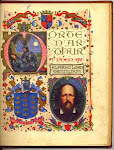







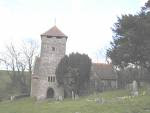
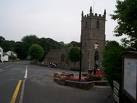







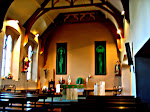









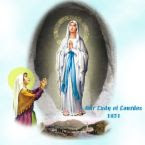


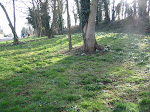

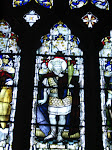
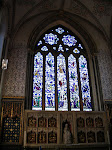
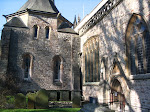
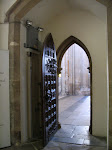
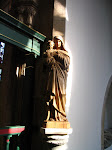


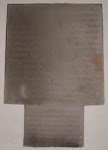



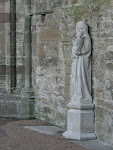









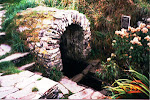


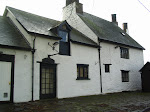
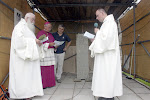



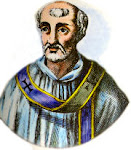
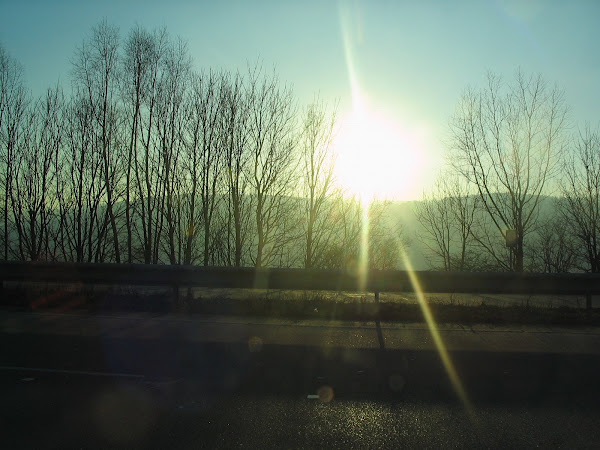


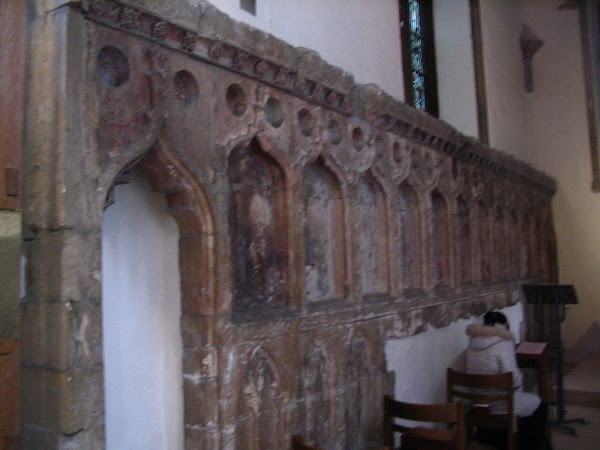
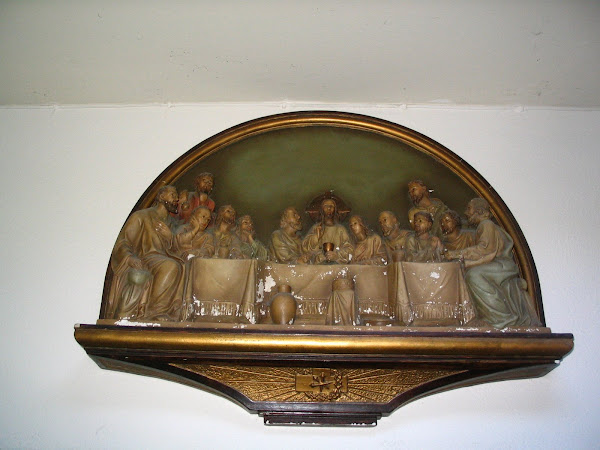




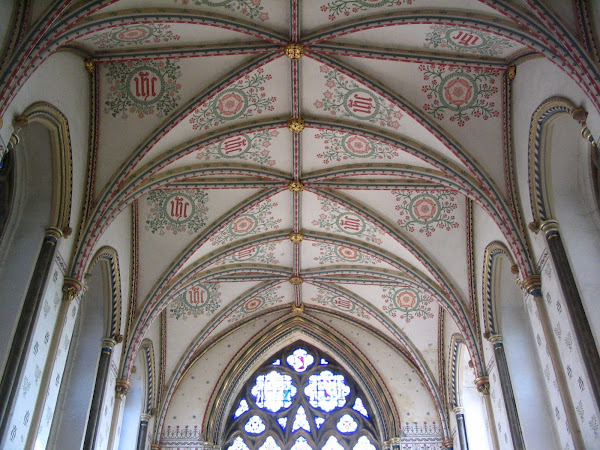


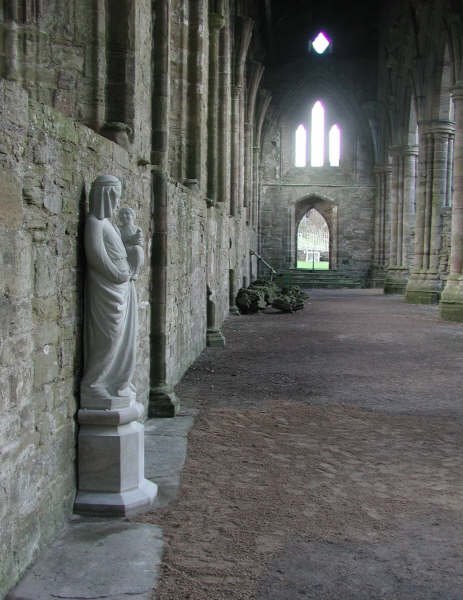
No comments:
Post a Comment